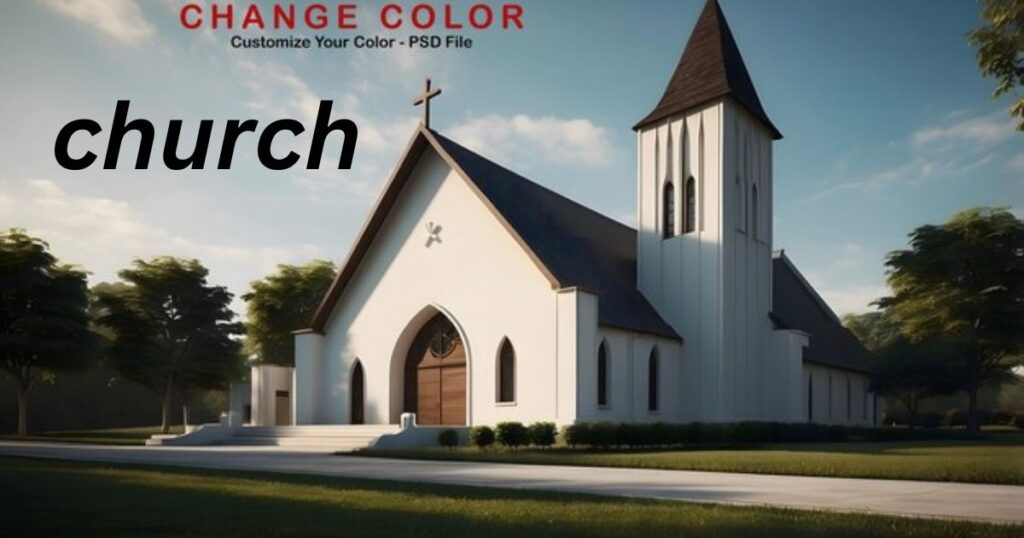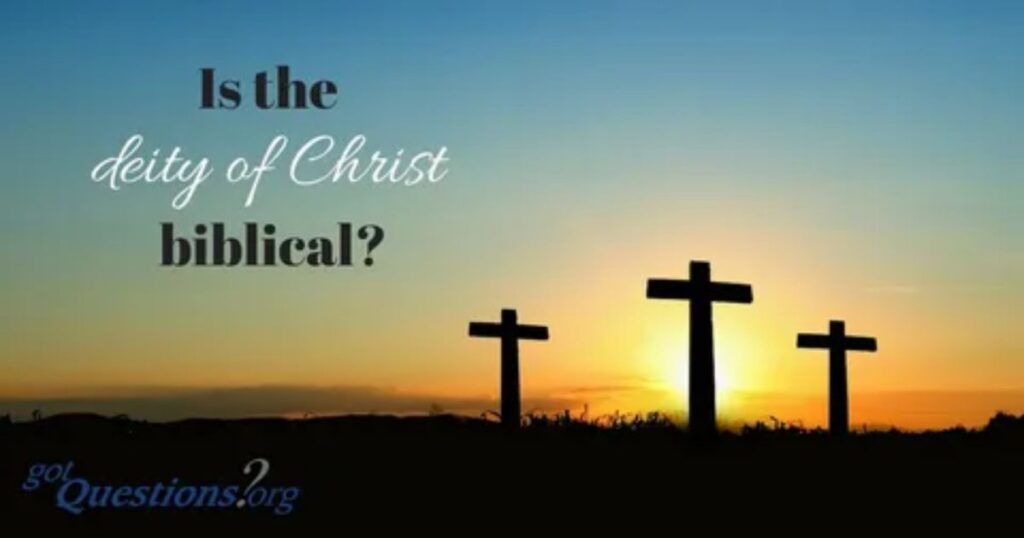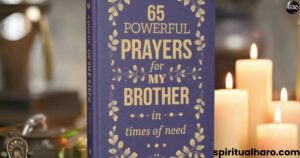The terms “Baptist” and “Non Denominational” represent two distinct approaches to Christian faith and worship. Baptists belong to an established denomination with specific traditions, such as baptizing believers by immersion and emphasizing the independence of each local church. In contrast, Non Denominational churches avoid formal affiliations, focusing on creating a more flexible and contemporary worship experience. These differences make the debate of Baptist vs Non Denominational an important consideration for those seeking a church that aligns with their beliefs and lifestyle.
When comparing Baptist vs Non Denominational churches, their contrasting practices and structures become clear. Baptists often follow traditional doctrines and emphasize a structured approach to scripture and worship. Meanwhile, Non Denominational churches prioritize inclusivity and personalization, often adapting their services to appeal to modern believers. Understanding these key differences helps individuals choose the church that best supports their spiritual growth.
What is the Difference Between Baptist and Non Denominational Christian Churches?

Baptist and Non Denominational Christian churches differ in their traditions, worship styles, and organizational structures. While both share a foundation in the Bible and Christian faith, their approaches to theology and community life set them apart.
Baptist churches belong to a long established denomination with deep historical roots. They emphasize doctrines such as believer’s baptism by immersion, performed only on individuals who profess faith. Additionally, Baptist churches value the autonomy of each local congregation while adhering to shared denominational principles.
Non Denominational churches, in contrast, are not tied to any specific denomination. They focus on a flexible and contemporary approach to worship, prioritizing personal relationships with God over formal traditions. This makes them appealing to those seeking a less rigid church environment.
Bible Verse: “For where two or three gather in my name, there am I with them.” (Matthew 18:20)
- Worship styles are another key distinction. Baptist churches often follow a traditional format with hymns and structured sermons, while Non Denominational churches may include modern music, multimedia, and a casual atmosphere that appeals to a broader audience.
- In governance, Baptist churches have a well defined structure, often guided by shared creeds or rules. Non Denominational churches operate independently, allowing pastors or leaders to shape their unique practices and teachings.
- Theological interpretations also vary. Baptists typically follow traditional interpretations of scripture, while Non Denominational churches encourage open discussion and may incorporate modern perspectives into their teachings.
- Both types of churches value community, but their approaches differ. Baptists emphasize small group activities, Sunday schools, and mission work. Non Denominational churches often focus on outreach events, informal gatherings, and fostering inclusivity.
- Doctrinally, Baptists usually have detailed statements of faith for members to follow, while Non Denominational churches opt for simpler, more open belief systems that allow for individual interpretation.
- Ultimately, the choice between Baptist vs Non Denominational churches comes down to personal preferences and spiritual needs. Those who appreciate tradition and structure may gravitate toward Baptist churches, while those seeking modern, adaptable worship might prefer Non Denominational communities. Both church types provide opportunities for spiritual growth, helping individuals strengthen their connection with God in unique ways.
Related Guide:
Discovering How the Holy Spirit Feels Physically: A Christian Perspective
What Do Non Denominational Churches Believe?

Non Denominational churches focus on a personal relationship with God, free from the formal structures and traditions of established denominations. Their beliefs are grounded in the Bible but often allow for flexibility in interpretation and practice. This approach appeals to individuals who value simplicity and inclusivity in their faith journey.
Unlike Baptist vs Non Denominational churches, where Baptists follow specific denominational doctrines, Non Denominational churches often avoid rigid creeds. Instead, they emphasize core Christian principles such as salvation through faith in Jesus Christ, the importance of scripture, and the power of prayer.
Bible Verse: “All Scripture is God-breathed and is useful for teaching, rebuking, correcting and training in righteousness.” (2 Timothy 3:16)
- Non Denominational churches typically focus on the essentials of Christian faith rather than debates over theological nuances. They prioritize fostering a welcoming atmosphere for all believers, regardless of their backgrounds or previous affiliations.
- Worship services in Non Denominational churches are often contemporary and relaxed. They commonly include modern music, multimedia presentations, and interactive sermons, making them accessible and engaging for people of all ages.
- Community is another vital aspect of Non Denominational churches. They emphasize building relationships through small groups, outreach events, and informal gatherings, helping members connect with one another and with God.
- Most Non Denominational churches believe in the importance of the Holy Spirit in guiding daily life. They encourage individuals to seek a personal connection with God through prayer, Bible study, and worship.
- Doctrinally, these churches tend to adopt a broad statement of beliefs that centers on the gospel message. This flexibility allows members to focus on shared faith rather than denominational differences.
- Unlike Baptist vs Non Denominational traditions, where Baptist churches often have structured leadership, Non Denominational churches are typically led by individual pastors or a small team. This independence allows them to adapt their teachings and practices to the needs of their community.
- In essence, Non Denominational churches aim to provide a faith experience that is personal, inclusive, and focused on the foundational teachings of Christianity. Their approach offers believers a space to grow spiritually while embracing modern worship practices.
What Bible Does Non Denominational Churches Use?

Non Denominational churches do not adhere to a specific version of the Bible, allowing flexibility in the choice of translations. The decision often depends on the preferences of the church leadership and the needs of its congregation. Popular versions include the New International Version (NIV), English Standard Version (ESV), and New Living Translation (NLT), known for their readability and clarity.
Unlike Baptist vs Non Denominational traditions, where Baptist churches may have a preferred translation, Non Denominational churches prioritize accessibility. They aim to provide a Bible that resonates with their members, helping them better understand scripture and grow in their faith.
Bible Verse: “Your word is a lamp to my feet and a light to my path.” (Psalm 119:105)
- Non Denominational churches value the Bible as the ultimate authority for faith and practice. Regardless of the translation used, they encourage members to study scripture regularly and apply its teachings to their daily lives.
- Many Non Denominational churches offer a variety of Bible translations during worship and small group studies. This approach ensures that members can choose a version they feel comfortable reading and understanding.
- In sermons, pastors in Non Denominational churches often use translations that best convey the message they want to communicate. They may even reference multiple versions to provide deeper insights into the text.
- Digital tools, such as Bible apps and online resources, are widely embraced in Non Denominational settings. These tools make it easy for members to access different translations and study materials, fostering a deeper connection with scripture.
- While Non Denominational churches focus on flexibility, they still emphasize the importance of scripture’s accuracy and integrity. Leaders often guide members in selecting translations that are both reliable and easy to understand.
- This inclusive approach to Bible usage reflects the overall philosophy of Non Denominational churches: to remove barriers and make faith accessible to everyone. By offering options, they help believers engage with God’s word in a way that feels personal and meaningful.
- Ultimately, the Bible used in Non Denominational churches may vary, but its role as the foundation of Christian faith remains constant. This adaptability allows these churches to meet the diverse spiritual needs of their congregations while staying rooted in the teachings of scripture.
What’s the Difference Between Baptist and Non Denominational Worship Styles?

The worship styles of Baptist and Non Denominational churches differ significantly, reflecting their unique approaches to faith and community. Baptist churches tend to follow a traditional format, while Non Denominational churches often embrace modern and flexible practices.
Baptist worship services typically include hymns, scripture readings, and structured sermons rooted in Biblical teachings. These services maintain a sense of reverence, with a focus on doctrinal consistency and community prayer.
Non Denominational worship, on the other hand, is often contemporary and relaxed. These churches frequently feature modern worship music, multimedia elements, and interactive sermons to create a more engaging experience for attendees.
Bible Verse: “Sing to the Lord a new song; sing to the Lord, all the earth.” (Psalm 96:1)
- In Baptist churches, hymns are often sung from traditional hymnals accompanied by a choir or organ. The music is typically solemn and reflective, aiming to deepen the congregation’s connection with God.
- Non Denominational churches often use worship bands with guitars, drums, and keyboards to lead upbeat and energetic songs. This modern approach appeals to younger audiences and those seeking a more casual worship environment.
- Prayer is a vital part of worship in both traditions, but the styles differ. Baptist services may include formal, structured prayers led by pastors or deacons, while Non Denominational churches often encourage spontaneous and personal prayers during services.
- Another difference lies in service length and format. Baptist services tend to follow a set schedule, with clear start and end times. Non Denominational services are often more flexible, allowing for extended worship, discussions, or personal testimonies.
- Community participation also varies. Baptist worship may involve congregation-led scripture readings or scheduled testimonies, whereas Non Denominational worship encourages active engagement through casual discussions or group prayer sessions.
- Overall, the choice between Baptist vs Non Denominational worship styles depends on personal preference. Those who value tradition and structure may gravitate toward Baptist services, while individuals seeking a modern, dynamic worship experience may prefer Non Denominational churches. Both styles aim to honor God and nurture spiritual growth, offering meaningful ways to connect with faith.
How Do Baptist and Non Denominational Churches View Baptism?

Baptism holds significant importance in both Baptist and Non Denominational churches, but their views and practices differ. These differences reflect their theological approaches and how they emphasize the act of baptism in a believer’s faith journey.
Baptist churches strictly adhere to the practice of believer’s baptism by immersion. They believe baptism is a public declaration of faith that should only be performed on individuals who consciously profess Jesus Christ as their Savior. It is not seen as a means of salvation but as an act of obedience and testimony.
Non Denominational churches also practice baptism but often take a more flexible approach. While immersion is the most common method, they may allow other forms, such as sprinkling, depending on personal preference or circumstances. They emphasize the symbolic nature of baptism as an outward expression of an inward commitment to Christ.
Bible Verse: “Therefore go and make disciples of all nations, baptizing them in the name of the Father and of the Son and of the Holy Spirit.” (Matthew 28:19)
- Baptist churches view baptism as a prerequisite for church membership. It signifies an individual’s integration into the faith community and their commitment to living a Christian life. Non Denominational churches, on the other hand, may not require baptism for membership, focusing instead on a personal relationship with God.
- For Baptists, the timing of baptism is crucial. They believe it should occur after a person makes a conscious decision to follow Christ, often during their teenage or adult years. Non Denominational churches are generally more open to baptizing believers of any age as long as they understand its meaning.
- In Baptist services, baptisms are formal and structured, typically performed during a designated portion of the service. Non Denominational churches often incorporate baptisms into more casual settings, such as retreats, outdoor events, or special celebrations.
- Both Baptist and Non Denominational churches agree that baptism is an important step in a believer’s spiritual journey. However, Baptist churches emphasize doctrinal consistency, while Non Denominational churches prioritize individual experiences and inclusivity.
- The symbolism of baptism is central in both traditions. It represents cleansing from sin, renewal of life, and identification with Christ’s death, burial, and resurrection. This shared belief underscores the unity between Baptist vs Non Denominational practices despite their differences.
- Ultimately, both traditions encourage believers to take the step of baptism as a meaningful act of faith. Whether approached with Baptist structure or Non Denominational flexibility, baptism remains a powerful expression of devotion to God.
What Are the Differences in Governance Between Baptist and Non Denominational Churches?
The governance of Baptist and Non Denominational churches varies in several key areas, reflecting their differing approaches to leadership, decision making, and tradition. These differences affect how the churches operate, make decisions, and engage with their communities.
Baptist churches typically follow a congregational governance model, where authority lies with the congregation. Key decisions, such as choosing pastors and approving church budgets, are made collectively through congregational votes. This ensures a democratic process where all members have a voice in the church’s direction.
In contrast, Non Denominational churches tend to have a more centralized structure, with decision making often in the hands of a senior pastor or a small leadership team. This model offers greater flexibility and allows decisions to be made more efficiently, often with less involvement from the congregation in day-to-day operations.
Bible Verse: “Where there is no vision, the people perish.” (Proverbs 29:18)
- Decision making process: In Baptist churches, decision making is largely democratic. Church members gather for meetings to vote on key issues, ensuring that major decisions reflect the collective will of the congregation. Non Denominational churches, however, place decision making power with the leadership team or senior pastor, who guides the church based on their vision and the needs of the congregation.
- Accountability: In Baptist churches, leaders are held accountable by the congregation. Members play an active role in overseeing church leadership, ensuring that leaders adhere to the church’s principles and that decisions align with the church’s shared beliefs. Non Denominational churches tend to focus on accountability within the leadership team. The senior pastor and other leaders are accountable to each other and often a board of elders or trustees, though the congregation may not be as involved in this process.
- Baptist churches often belong to larger denominational bodies, such as the Southern Baptist Convention, which provides a network of support, resources, and shared values. This broader organizational structure influences governance decisions and establishes a clear set of expectations for each church. Non Denominational churches are independent and not bound by denominational guidelines, allowing them to create their own governance structures and adapt their practices to the needs of their congregation.
- Influence of tradition: Baptist churches place significant importance on tradition, which impacts everything from governance to worship. This commitment to tradition helps maintain continuity and unity across Baptist churches, as they often follow similar practices and guidelines. Non Denominational churches, however, tend to be more flexible and innovative, often creating their own traditions and governance structures to fit the specific needs and preferences of their community.
- The role of pastors differs between the two types of churches. In Baptist churches, pastors are often supported by deacons or elders, sharing leadership duties and decision-making responsibilities. In Non Denominational churches, pastors typically have more authority, often taking a leading role in both spiritual and operational decisions.
- Financial management in Baptist churches is guided by denominational standards, with a focus on transparency and stewardship. Non Denominational churches, however, have the freedom to set their own financial policies and priorities, allowing for flexibility in how resources are managed and distributed.
- Ultimately, the differences in governance between Baptist vs Non Denominational churches reflect their unique approaches to leadership, decision making, and tradition. Baptist churches prioritize collective involvement and tradition, while Non Denominational churches emphasize flexible leadership and adaptability. Both structures serve to strengthen the spiritual life of their members and provide a framework for growth and outreach.
What Similarities Exist Between Baptist and Non Denominational Churches?

While Baptist and Non Denominational churches have some key differences, they also share many similarities. Both are Christian faith communities that emphasize the importance of the Bible, the centrality of Jesus Christ, and the need for personal faith and salvation. These shared values form the foundation of both traditions, despite their varying practices.
Both Baptist and Non Denominational churches prioritize the authority of the Bible. In both traditions, the Bible is considered the inspired word of God and serves as the guide for faith and practice. Whether through sermons, Bible studies, or personal devotionals, both types of churches encourage their members to engage with scripture regularly.
Bible Verse: “Your word is a lamp to my feet and a light to my path.” (Psalm 119:105)
- Both Baptist and Non Denominational churches also stress the importance of a personal relationship with Jesus Christ. Salvation through faith in Christ is central to the teachings of both, with an emphasis on repentance, forgiveness, and eternal life. While their methods of worship may differ, both traditions celebrate the transformative power of Christ’s love.
- Worship is another common area between the two. Although the style may vary, both Baptist and Non Denominational churches offer worship services that include prayer, singing, and scripture reading. Both traditions believe that worship is an essential part of the Christian life and a way to connect with God.
- Baptist vs Non Denominational churches both engage in community outreach and service. Both traditions place a strong emphasis on helping those in need, whether through food drives, missions, or supporting local ministries. Serving others is seen as an essential part of living out one’s faith in both church communities.
- Another similarity is the practice of baptism. Both Baptist and Non Denominational churches view baptism as an important step in the Christian faith, though they may differ in the method of baptism. In both traditions, baptism is seen as an outward symbol of an inward commitment to Christ.
- Both Baptist and Non Denominational churches encourage fellowship among believers. Whether through small groups, Bible studies, or church events, both traditions create spaces for members to connect, share their faith, and support one another in their spiritual journeys.
- Both Baptist vs Non Denominational churches place a strong emphasis on the Great Commission to go and make disciples of all nations. Evangelism and spreading the gospel are central to both traditions, with each church encouraging its members to share their faith and invite others to join their community.
- Both Baptist and Non Denominational churches emphasize the role of prayer in the life of a believer. Prayer is an essential practice in both traditions, whether for personal growth, intercession for others, or seeking God’s guidance. Both communities encourage their members to pray regularly and as part of worship services.
- Lastly, both types of churches value Christian education. Whether through Sunday school, Bible studies, or other educational programs, both Baptist and Non Denominational churches aim to equip their members with knowledge of scripture and practical ways to live out their faith.
- Despite the differences between Baptist vs Non Denominational churches, these shared values and practices highlight the common ground between the two. Both traditions aim to help believers grow in their faith and live out their calling to love and serve God and others.
FAQ’s
What is the difference between non denominational and Baptist?
The main difference between Baptist vs Non Denominational churches is that Baptists follow a more structured, traditional approach, while Non Denominational churches are more flexible in leadership and practices.
What makes Baptists different from other denominations?
What makes Baptists different from other denominations, including Baptist vs Non Denominational, is their emphasis on believer’s baptism by immersion and congregational governance.
What denomination is non denominational closest to?
Non Denominational churches are closest to Baptist in their emphasis on the authority of the Bible and personal faith, though they differ in governance and traditions, as seen in Baptist vs Non Denominational.
What do baptist churches believe?
Baptist churches believe in salvation through faith in Jesus Christ, believer’s baptism by immersion, and the authority of the Bible, which contrasts with some practices in Baptist vs Non Denominational churches.
What do non denominational Christians believe?
Non Denominational Christians believe in salvation through faith in Jesus Christ, the authority of the Bible, and emphasize a personal relationship with God, which differs in some aspects from Baptist vs Non Denominational practices.
conclusion
While both Baptist and Non Denominational churches share a common foundation in Christianity, their differences in governance, traditions, and practices are notable. Baptist vs Non Denominational churches vary in their approach to baptism, leadership, and the role of tradition. Baptist churches follow a more structured, traditional model, emphasizing congregational decision making, believer’s baptism by immersion, and a strong connection to denominational teachings. Non Denominational churches, however, offer greater flexibility, with leadership typically centralized around a senior pastor and a more adaptable approach to worship and church practices.
Despite these differences, Baptist vs Non Denominational churches both prioritize a personal relationship with Christ, the authority of the Bible, and the importance of evangelism. Ultimately, the choice between the two depends on personal preferences regarding governance and worship style. Both offer vibrant faith communities committed to helping individuals grow spiritually and live out their faith in meaningful ways.

With five years of experience as a content writer, I specialize in creating engaging website content that drives traffic and builds brand loyalty. My expertise lies in crafting clear, compelling narratives that connect with audiences and optimize for search engines. I’m passionate about helping businesses articulate their unique value through well-researched blog posts, persuasive web copy, and impactful social media content. My goal is to transform ideas into captivating stories that not only inform but also inspire action.







